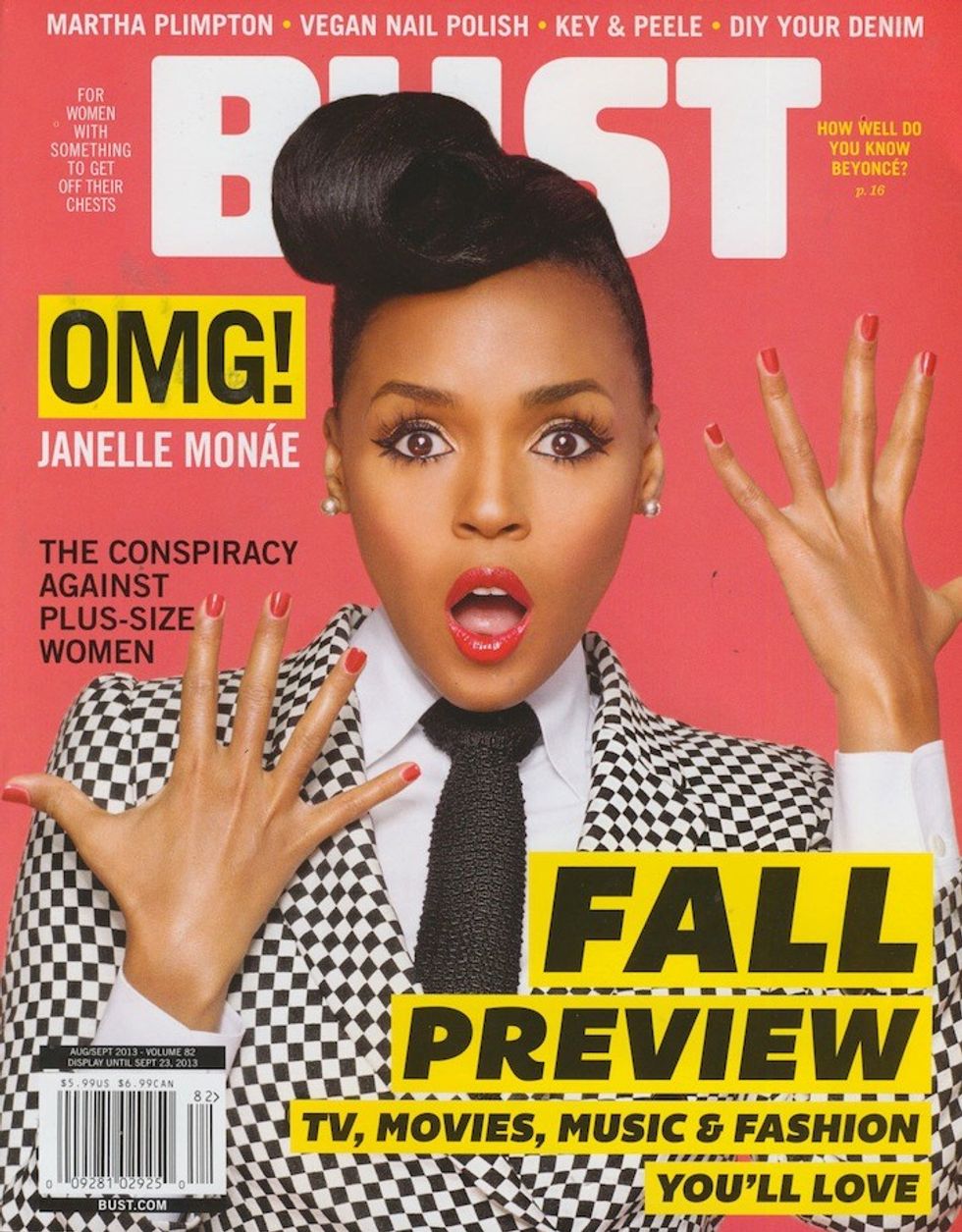Janelle Monae Speaks On Sci-Fi Influences & Her First Job

Chances are you've been hearing Janelle Monae's name a lot in the last few months. And with good reason — she's about to release her second studio album, The Electric Lady, and has made a series of appearances and dropped a few eye-popping videos to promote the new project. For the latest addiiton to her catalog of excellence for 2013, check out the cover interview she just did with Bust Magazine — she gives a few unsurprisingly bizarre answers and then breaks it down with some real information on what life was like pre-fame and some of her favorite sci-fi influences. Click through for the full conversation, pre-order The Electric Lady on iTunes, and check out what she was up to after school:
After high school, I needed money to go to New York, but nobody would hire me. Then this lady from my church who was the supervisor at a cleaning service said, “Come here and I’ll hire you.” I was the youngest maid there, and all the women would ask me to sing while we cleaned. I was the only one with a clean record. A lot of the women were ex-convicts trying to get back on their feet. That was one of the most interesting jobs I’ve had. Then, when I moved to Atlanta, I worked at Office Depot. I got fired from that job because they caught me using the computer at the store to respond to my fans who had seen me perform. After that, I didn’t work any more. It was time. It was all or nothing. I pressed my own EP, The Audition, and I sold it for five dollars while living in a boarding house with five other girls.
She also talked about how she got into sci-fi themes in the first place:
I would always watch The Twilight Zone with my grandmother, and I knew about Star Wars and things. But when I met [my producing partners] Chuck Lightning and Nate Wonder, they got me into Isaac Asimov, artificial intelligence, and cybernetics. Chuck asked me to watch Metropolis, and I was like, Wow. I saw the parallels between growing up in Kansas City and the have-nots living underground, working for the haves. That constant struggle was something I could identify with because my parents worked day and night, trying to make a living. I thought science fiction was a great way of talking about the future. It doesn’t make people feel like you’re talking about things that are happening right now, so they don’t feel like you’re talking down to them. It gives the listener a different perspective.
>>>Read the full interview (via Bust)



